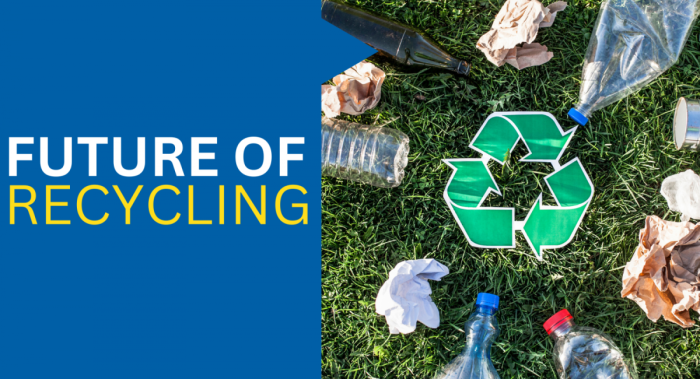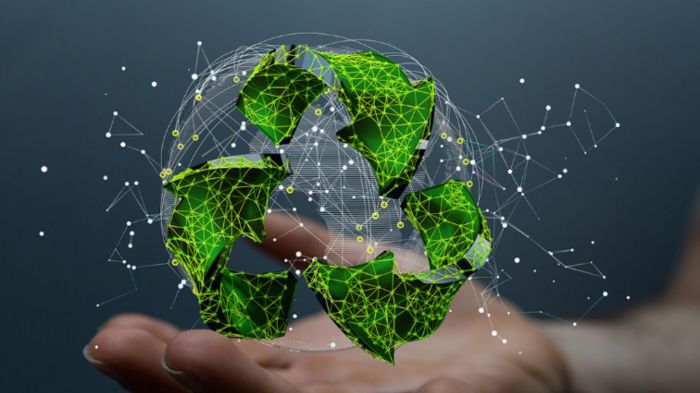Embark on a journey with 100 Recycling Tips for a Sustainable Future, delving into the realm of sustainability and waste reduction. This comprehensive guide aims to enlighten and inspire readers on the path to a greener tomorrow.
Learn about the top recycling tips, innovative household practices, and advanced techniques to make a positive impact on the environment.
General Recycling Tips

Recycling is an essential practice that can have a significant impact on reducing waste and conserving natural resources. Here are the top 10 recycling tips for beginners:
1. Know What Can Be Recycled
- Check with your local recycling facility to understand what materials are accepted for recycling in your area.
2. Set Up a Recycling Station
- Create a designated area in your home for sorting recyclables to make it easier to recycle regularly.
3. Reduce Contamination
- Rinse food containers and remove any non-recyclable materials before placing them in the recycling bin.
4. Avoid Plastic Bags
- Avoid putting recyclables in plastic bags, as they can cause issues at the recycling facility.
5. Buy Recycled Products
- Support the recycling industry by purchasing products made from recycled materials whenever possible.
6. Recycle Electronics
- Find a local electronic waste recycling program to properly dispose of old electronics.
7. Donate Unwanted Items
- Instead of throwing away items in good condition, donate them to local charities or thrift stores.
8. Compost Food Waste
- Reduce organic waste by composting food scraps and yard waste instead of sending them to the landfill.
9. Support Recycling Initiatives
- Participate in community clean-up events and support organizations working towards sustainability through recycling.
10. Educate Others
- Spread awareness about the importance of recycling and encourage others to join in the effort to create a sustainable future.
Household Recycling Practices

When it comes to sustainability, every household plays a crucial role in reducing waste and promoting recycling. By repurposing common household items, setting up a recycling system at home, and composting organic waste, we can make a significant impact on our environment.
Repurposing Common Household Items
Repurposing common household items is a creative way to reduce waste and give new life to old objects. Here are some innovative ways to repurpose everyday items:
- Turn old glass jars into storage containers for pantry items or crafting supplies.
- Use old t-shirts to create cleaning rags or reusable shopping bags.
- Transform used coffee grounds into a natural exfoliating scrub for your skin.
Setting Up a Recycling System at Home
Setting up a recycling system at home is essential to ensure that recyclable materials are properly sorted and disposed of. Here is a simple guide to help you set up an effective recycling system:
- Designate separate bins for different types of recyclables, such as paper, plastic, glass, and metal.
- Label each bin clearly to avoid confusion and ensure that everyone in the household knows what goes where.
- Regularly empty the bins and take them to a recycling center or collection point in your area.
Benefits of Composting Organic Waste
Composting organic waste is a sustainable practice that can help reduce greenhouse gas emissions and enrich the soil in your garden. Here are some benefits of composting organic waste:
- Reduces the amount of organic waste sent to landfills, where it can produce harmful methane gas.
- Creates nutrient-rich compost that can be used to fertilize plants and improve soil health.
- Helps conserve water in the garden by improving soil structure and water retention.
Advanced Recycling Techniques

When it comes to advanced recycling techniques, there are several innovative methods that can help us move towards a more sustainable future.
Upcycling and Environmental Impact
Upcycling is the process of transforming waste materials or unwanted products into new materials or products of better quality or for better environmental value. This practice not only helps reduce waste but also minimizes the consumption of new raw materials, which in turn lowers energy usage and greenhouse gas emissions.
Recycling Electronics Safely and Responsibly
Electronics recycling involves safely dismantling and disposing of electronic devices to recover valuable materials like metals, plastics, and glass. It is crucial to recycle electronics responsibly to prevent harmful substances from contaminating the environment and to recover valuable resources that can be reused in manufacturing new products.
Reducing, Reusing, and Recycling in the Circular Economy Model
The circular economy model aims to minimize waste and promote the efficient use of resources by emphasizing the principles of reducing, reusing, and recycling. By adopting this model, we can create a closed-loop system where products and materials are reused and recycled continuously, reducing the need for extracting new raw materials and minimizing environmental impact.
Outcome Summary

As we wrap up our exploration of 100 Recycling Tips for a Sustainable Future, remember that every small effort counts towards a more eco-friendly world. Let’s continue to recycle, repurpose, and reduce waste for a better tomorrow.